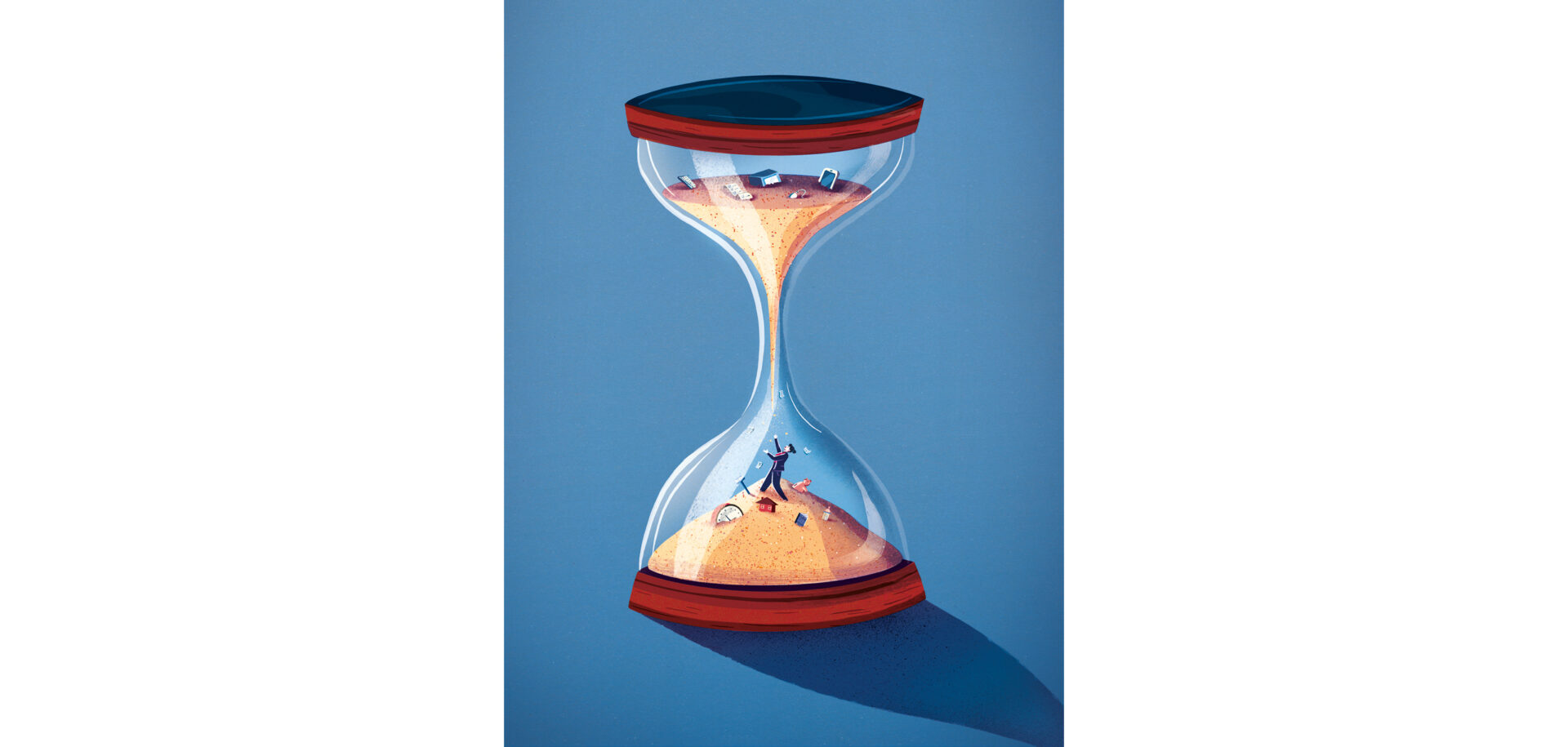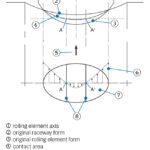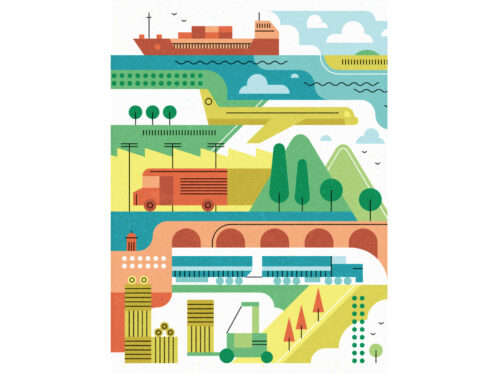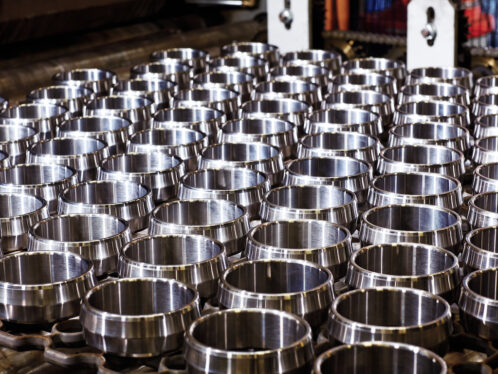
Time for a change
“Time poverty” is one of the major challenges of the modern age, with many of us struggling to manage all of our responsibilities. Getting organized and slowing down are two possible solutions.
Do your family and friends complain about how you’re always hanging around, ever available? Have you been reading too many novels lately? Are you enjoying yet another slow afternoon at work? Don’t worry. If you answer “no” to all of the above, you’re far from alone. The fact is, there just isn’t enough time, and life only seems to be speeding up. There are never enough hours in the day to get work done, and with smartphones delivering information at all hours, the dividing line between work life and home life has become blurred. Even children are struggling to keep up with their demanding schedules. Time management has become a bustling self-help industry, tapping into the public’s frustrated desires with books such as Tim Ferriss’ The 4-Hour Work Week or David Allen’s Getting Things Done. But is the lack of time today really worse than it has ever been? Carl Honoré, author of the 2004 bestseller In Praise of Slow and most recently The Slow Fix, thinks it is. “This moment in history is a perfect storm of social, cultural and technological trends that are spinning out of control. It’s true that throughout history there have been surges of worry. Even in ancient Rome, there were complaints about sundials, and during the Industrial Revolution they worried about the speed of trains, which was about 30 kilometres per hour. But the upward curve has gone on since. In the modern era, machines make things faster, and capitalism rewards speed.” What’s an overwhelmed person to do? Well, one strategy is to get ahead of the speed by getting things done faster and smarter, to carve out time for prioritized activities. Online you can find many sites devoted to “life hacking”, where productivity tips and strategies are tested and reviewed. These “hacks” include recommendations on which apps or software are most efficient for accomplishing tasks, or simple advice such as leaving your bag in front of the door, with the keys inside, so you don’t waste time looking for both in the morning. Mike Vardy is a devotee of the life-efficiency industry who once wrote a parody website extolling extreme acts of time-saving productivity. “I got irked when I saw advice like how to eat your hamburger so the bun doesn’t get soggy,” he says. “That kind of thing goes way too far.” Nevertheless, Vardy is still a believer in the value of thoughtful productivity tips. A former managing editor of the Lifehack blog, today he writes The Productivityist blog, and he’s the author of books such as The NOW Year: A Practical Guide to Calendar Management. Vardy argues that the root of the time-poverty problem lies in people’s incorrect approach to time management. He believes that we should think in terms of tasks rather than time. “People use their calendars incorrectly,” he explains. “They overschedule and leave no room for flexibility. But we’re most productive in a state of flow, so we should want to keep that going. If you’re thinking too much about the time, you don’t give yourself up to the task, and it’s self-defeating.” However, Vardy cautions that too narrow a focus on small productivity improvements misses the point. He encourages people to focus on the quality of time, and not the quantity. “Too many people worry, ‘How can I get more into a day?’” he says. “They should be asking, ‘How can I make my day more meaningful?’” Honoré echoes the sentiment, saying, “Tips can be useful, but the spirit of the approach can be problematic if it becomes all about the micro and loses the macro, the big picture.” Instead, Honoré seeks to balance life’s acceleration with a commitment to slowness. “A reaction has begun to build against the idea that faster is always better,” he says. The Slow Movement (coined by Honoré’s 2004 book) advocates a cultural shift towards slowing down life’s pace, and it has grown to include micro-movements such as Slow Food, Slow Cities (Cittaslow), Slow Parenting, Slow Finance – even Slow Science. Honoré explains that the body and mind can only cope with so much. “Yes, the Romans were stressed about their schedules too, but now our physical selves are hitting those limits.” He blames the “juggernaut of speed” for enormous increases in child depression, anxiety, self-harm and burnout, all occurring before the age of 10. “Think of the number of kids who are fed Ritalin just to get through the day, and all the people out there on psychotropic drugs, those who aren’t sleeping enough or too lightly,” he says. “Our bodies are sending an invoice to us from stuff that has been going on for a long, long time. “Speed has begun backfiring on us on the macro level, too,” Honoré says. “Think of the financial crisis, which occurred because money got too fast.” Instead, slow living involves eliminating distractions and allowing yourself to commit to an activity for sustained periods of time. In Honoré’s words, it’s about “savouring the hours and minutes rather than just counting them. Doing everything as well as possible, instead of as fast as possible. It’s about quality over quantity in everything from work to food to parenting.” But Honoré is quick to note that he is not a slow fundamentalist. “There’s good and there’s bad slow,” he says. “But we all have our own personal metronome, and if you can live life as close to it as possible, that’s happiness.”





